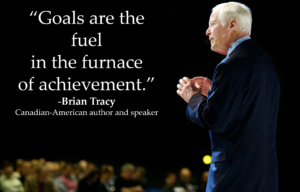You’re probably familiar with an annual performance review. According to SHRM, about 71% of organizations conduct them.
But not many people have done an annual life review.
In a way, that’s odd because of the importance of our quality of life.
“The unexamined life is not worth living.”
-Socrates, ancient Greek philosopher
Those who do such reviews they tend to call them different things. Some call it an “annual life review.” Others call it a “personal annual review.” A friend and colleague of mine calls it his “annual look.” He’s been doing it regularly since 1977, and he swears by it.
The idea is to look back on the year and evaluate what’s gone well and what hasn’t—and to look ahead and plan for the year to come.
14 Benefits of Doing an Annual Life Review
Why do this? An annual life review can help you:
- gain clarity about how things are going in your life
- spot patterns (even otherwise hidden ones) in your life
- break out of “drifting mode” and live more intentionally
- get unstuck (and avoid feeling like you’re helpless or trapped)
- feel motivated to go after important priorities (e.g., better work and relationships)
- set better goals—or recalibrate them when needed
- celebrate your progress and accomplishments
- be mindful of what you’re grateful for
- identify areas where you want or need to improve
- examine key drivers of your life like your habits and systems
- boost your confidence and sense of agency over your life
- spot and track changes and progress from year to year
- set you up for action and momentum in the year to come
- create opportunities for breakthroughs in your life (e.g., when you disrupt a negative pattern and step into a bigger life with more success, joy, and fulfillment)
Writer Matthias Frank suggests that doing such an annual review will be “your highest leverage activity all year long.”
“When you review your year as a whole, seemingly unrelated parts of your life come into focus at once,
enabling you to connect the dots.”
–Fadeka Adegbuyi, writer and content strategist

Take the Traps Test
We all fall into traps in life. Sometimes we’re not even aware of it, and we can’t get out of traps we don’t know we’re in. Evaluate yourself with our Traps Test.
How to Conduct an Annual Life Review: Time & Place
So how does this work? It doesn’t have to be complicated.
Before diving in, you’re wise to choose an appropriate setting for this reflective work. Find a place where you can focus and engage in undisturbed deep work.
“Reflection must be reserved for solitary hours.”
-Jane Austen, English novelist
Why not choose an inspiring setting, one that uplifts you? (Sometimes, it’s helpful to get away from your usual places.)
It’s important to set aside an ample amount of time. For me, it usually takes 2-3 hours, or half a day at most. You can do it all at once or break it into chunks (e.g., an hour at a time), as you wish. Don’t rush it.
Key point: be totally honest. There’s no sense in holding back or exaggerating things in your annual life review. This is for you and you alone.
Annual Life Review Template: Topics to Address
Once you’ve determined the time and place, you’ll want to turn to the questions and topics you’ll want to address. Though some may want to improvise and do a stream-of-consciousness review, for many people it helps to have some structure—or at least some starter questions to kick things off.
Here’s a template of sorts, with five sections:
1. Highlights from This Past Year
Take a look back and capture the bright spots of your year. Look across a wide range of things here, from relationships, experiences, accomplishments, and awards to hobbies, passion projects, courses, and fun surprises. Any new skills developed or people served? Perhaps a reflection on how you enjoyed seeing loved ones or colleagues thrive? Even your favorite books or movies from the year, if you like. You may want to identify your top highlights or accomplishments so they don’t get lost in the shuffle.
When I do my annual life review, I start by listing things in chronological order as they occurred throughout the year. I go through my calendar from the start of the year to the finish and note the relevant things. (You can also go through your photos for the year and relive those memories.) I’m always amazed at how quickly I forget or discount good things, how fun it is to bring them back to my attention, and how powerful it is to see them together. The collection tells a story.
You can also break it up by month to make it more digestible, as shown below.
| January |
|
| February |
|
| March |
|
| April |
|
| (Etc.) |
|
2. Challenges from This Past Year
Next, look at the difficulties. What did you struggle with? Where did you fall down?
Sometimes it’s cathartic to list them out. Also, it can be empowering to see all the things you’ve overcome. Or just appreciate the fact that you’re still standing despite the challenges.
Be sure to give yourself grace. The point is not to expect a perfect year. After all, this is life, with all its alluring and aggravating ups and downs. Best to approach this process with curiosity, openness, and self-compassion—and to avoid judgment and negative self-talk.

Crafting Your Life and Work Course
Regain clarity, direction, and motivation for your next chapter, starting with a powerful foundation of self-awareness and commitment to your values and aspirations.
3. Aspirations for Next Year
Next, write down your hopes and dreams for the year to come. Think broadly here. For example, consider addressing the following areas:
- health
- relationships
- work
- education
- service
- fun
- financial
- personal development
Consider not only new things you want to bring into your life but also existing things you want to improve. Identify the ones that matter most to you—the areas in which change would most improve your happiness, fulfillment, and well-being. Ask yourself this:
How can you make the next year a great one?
4. Gratitude and Joys
Now, turn your attention to the top things you’re grateful for from the year (or even in your whole life, if you wish) and what (or who) has brought you the most joy. This will be a fun one.
5. Themes and Lessons Learned
Finally, look for themes or patterns. For example, were relationships the drivers of the highs and lows? Have you struggled to set boundaries with people in a way that’s dragging you down in multiple areas? Are you avoiding dealing with important matters?
What lessons have you learned this year? Are there take-aways that you can carry forward?
“Without reflection, we go blindly on our way, creating more unintended consequences,
and failing to achieve anything useful.”
–Margaret J. Wheatley, writer and teacher
(Note: In the five sections above, you can address both personal and professional matters together, if applicable, or you can separate them out. The key is to find what works best for you.)
Going Deeper on Your Annual Life Review: Extra Credit
If you want to go deeper with your annual life review, here are more things you can do that can be extremely valuable for the insights they provide:
Quality of Life Assessment
Evaluate your quality of life in key areas. This will help you identify your strongest areas and the areas that need work so you can act accordingly. For example, maybe you’re pleased with how things are going with your relationships and education but want to work on your health and finances? (Or vice versa.) (See my Quality of Life Assessment.)

Quality of Life Assessment
Evaluate your quality of life in ten key areas by taking our assessment. Discover your strongest areas, and the areas that need work, then act accordingly.
Traps Test: Common Traps of Living
What are the things that are inhibiting your happiness and quality of life? Are you struggling with negative self-talk? Self-doubt? Overthinking? Comparing yourself to others? Settling for an okay experience of life instead of fighting for a great one? (See my Traps Test.)

Take the Traps Test
We all fall into traps in life. Sometimes we’re not even aware of it, and we can’t get out of traps we don’t know we’re in. Evaluate yourself with our Traps Test.
Purpose Alignment Review
Is there a disconnect between the way you’re living and your purpose—your true reason for being? Or are they aligned? (See my article, “How to Discover Your Purpose.”)
“When we are clear about our purpose, or at least working toward it, our lives come together in powerful ways.”
–Christopher Gergen & Gregg Vanourek, LIFE Entrepreneurs: Ordinary People Creating Extraordinary Lives
Values Alignment Review
Are you building your life and time around what’s most important to you and upholding your deeply held beliefs? Or are you being pulled off course on these fronts? Are you honoring your core values? (See my Personal Values Exercise.)
“The more that we choose our goals based on our values and principles,
the more we enter into a positive cycle of energy, success, and satisfaction.”
-Neil Farber

Personal Values Exercise
Complete this exercise to identify your personal values. It will help you develop self-awareness, including clarity about what’s most important to you in life and work, and serve as a safe harbor for you to return to when things are tough.
Vision Alignment Review
Are you living in accordance with or working toward a bold and vivid picture of a better future? In pursuit of your dream of a good life? (See my article, “How to Craft a Vision of the Good Life.”)
(The good life is) “living in the place you belong, with the people you love, doing the right work—on purpose.”
–Richard Leider and David Shapiro
Strengths Alignment Review
To what extent are you using your core strengths—the things you’re really good at—in your life and work? (See my Strengths Search.)
“Liberating and expressing your natural genius is your ultimate path to success and life satisfaction.”
–Gay Hendricks, psychologist and author

Strengths Search
We all have core strengths–the things in which we most excel. Take this self-assessment to determine your core strengths so you can integrate them more into your life and work.
Passions Alignment Review
How prominent are the things that consume you with palpable emotion in your life—the things you love doing and that you find yourself circling back to? (See my Passion Probe.)
“Allow yourself to be silently guided by that which you love the most.”
-Rumi, 13th century poet and Sufi mystic

Passion Probe
Our passions are the things that consume us with palpable emotion over time. We love doing them and talk about them often. Take this self-assessment to find the ones that resonate most with you.
Goals Alignment Review
Are you not only clear about the desired results you’d like to achieve but also organizing your life and time accordingly? (See my Goals Guide: Best Practices in Setting and Pursuing Goals, and my Goal-Setting Template.)
“Goals are the fuel in the furnace of achievement.”
–Brian Tracy, author and speaker

Power Tip: Share your annual life review with someone you trust. Better yet, exchange reviews with that person and talk them through together. It’s a great way to get to know someone on a deeper level. And it can also help you take action on things going forward—an accountability partnership of sorts.
Call to Action
Doing an annual life review can bring more clarity and energy into your life. It can set you up for more action and momentum as you look to thrive in the new year.
Wishing you well with it, and please let me know if I can help.
–Gregg

Tools for You
- Traps Test (Common Traps of Living) to help you identify what’s getting in the way of your happiness and quality of life
- Quality of Life Assessment to help you discover your strongest areas and the areas that need work and then act accordingly
- Personal Values Exercise to help you determine and clarify what’s most important to you
Related Articles
- “How to Do an Annual Life Review: 7 Questions”
- “How to Break Bad Habits and Create Good Ones”
- “Renewing Yourself Amidst the Chaos”
- “The Power of Taking Full Responsibility for Your Life”
- “Are You Drifting through Life?”
- “Avoid These New Year’s Resolution Pitfalls”
- “The Leadership Reset You Need for the New Year”
- Goals Guide: Best Practices in Setting and Pursuing Goals
- Goal-Setting Template
Postscript: Inspirations on Reflection and Annual Life Reviews
- “There is one art of which people should be masters—the art of reflection.” -Samuel Taylor Coleridge, English poet, philosopher, and theologian
- “Before forging head-first into the future, take time to reflect on the past.” -Fadeka Adegbuyi, writer and content strategist
- “Follow effective action with quiet reflection. From the quiet reflection will come even more effective action.” -Peter Drucker, consultant, author, and expert on management and innovation
- “I think technology is a wonderful thing that has to be used thoughtfully … What I am very disturbed about is this trend of everything happening faster and faster and there being more and more general noise in the world, and less and less time for quiet reflection on who we are, and where we’re going.” –Alan Lightman, physicist, educator, and writer
- “In reflecting upon the year, do your best to examine and question, not dwell. You may have fallen short of your goals or experienced challenges that made for a hard year, but chances are you accomplished more than you think you did. No matter what you unearth in your annual review, you will have learned more about yourself and what you want in life and that counts for a lot. Reflect on the year gone by so you can move forward with renewed energy and optimism for all that’s to come.” -Fadeka Adegbuyi
Appendix: Other Approaches to an Annual Life Review
Of course, there are many different ways to do a life review, ranging from quite simple and straightforward to more detailed and complex. Below are two more examples.
Author James Clear keeps it simple. He calls it his “Annual Review,” and each year he addresses three simple but powerful questions:
What went well this year?
What didn’t go so well this year?
What did I learn this year?
(In 2017, he changed the third question from “What am I working toward?” to “What did I learn this year?”)
(My Annual Review) “will give me a chance to take stock of what went well and what could have gone better, while also giving me a moment to enjoy the progress I’ve made over the past 12 months.
But it’s not just about looking back. A good Annual Review is also about looking toward the future and thinking about how the life I’m living now is building toward a bigger mission. Basically, my Annual Review forces me to look at my actions over the past 12 months and ask, ‘Are my choices helping me live the life I want to live?’”
-James Clear, “My 2013 Annual Review”
By contrast, executive coach Steve Schlafman uses a more comprehensive approach with the following topics:
- Noting Your Key Moments & Milestones
- Reflecting on & Examining Key Topics:
- Success & Growth (e.g., biggest successes, how you grew, good habits, new skills, biggest obstacles you overcame, best decisions, risks and rewards)
- Failure & Falling Short (e.g., biggest failures, goals you didn’t reach, bad habits, worst decisions)
- People & Relationships (e.g., healthy new relationships, most impactful relationship, ones you value most)
- Lessons & Themes (e.g., top lessons learned, peak moments, worst moments, short summary of the year, what you’re most thankful for)
- Assessing Your Life in Key Areas (i.e., health, family/friends, love, money, career, spirituality, personal growth, fun, technology, environment)
- Planning for the New Year in Key Areas:
- Goals & Growth (e.g., three big goals for the year, new skills to develop, a superpower you plan to use to achieve your goals, how you want to be different by the end of the year, who you want to become)
- Moving On (e.g., what you want or need to stop doing)
- Habits & Behaviors (e.g., habits you’ll start, stop, and continue)
- Fears & Obstacles (e.g., how you’ll face your fears, obstacles you’ll address)
- Relationships (e.g., who warrants more attention, who you want a new relationship with, who you’ll help)
- Next Steps & Planning (e.g., next steps you’ll take toward your goals, resources needed, who you’ll ask for help, how to create early wins, how to evaluate progress)
Think about which format works best for you. And feel free to design your own, either from scratch or by building on, combining, or tweaking the approaches above. The key thing is to do something that will help you reflect, plan, and take action.

Crafting Your Life and Work Course
Regain clarity, direction, and motivation for your next chapter, starting with a powerful foundation of self-awareness and commitment to your values and aspirations.
+++++++++++++++++
Gregg Vanourek is a writer, teacher, and TEDx speaker on personal development and leadership. He is co-author of three books, including LIFE Entrepreneurs: Ordinary People Creating Extraordinary Lives (a manifesto for living with purpose and passion) and Triple Crown Leadership: Building Excellent, Ethical, and Enduring Organizations (a winner of the International Book Awards). Check out his Best Articles or get his monthly newsletter. If you found value in this article, please forward it to a friend. Every little bit helps!


2 thoughts on “Why You Should Do an Annual Life Review–And How”
This is great guidance for upcoming year2025. Thanks for quality article.
So glad you found value in this article, Sanjay. Wishing you a great new year! -Gregg